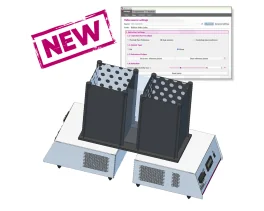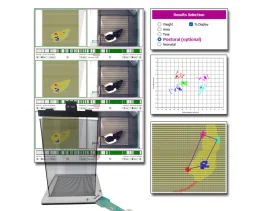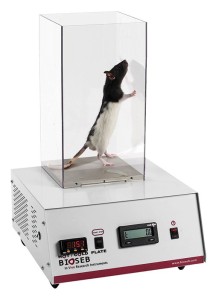Authors
G. Shapovalov, D. Gkika, M. Devilliers, A. Kondratskyi, D. Gordienko et al.
Lab
Bogomoletz Institute of Physiology, Kiev , Ukraine
Journal
Cell Reports
Abstract
Stimulation of μ-opioid receptors (OPRMs) brings powerful pain relief, but it also leads to the development of tolerance and addiction. Ensuing withdrawal in abstinent patients manifests itself with severe symptoms, including cold hyperalgesia, often preventing addicted patients from successfully completing the rehabilitation. Unsurprisingly, OPRMs have been a central point of many studies. Nonetheless, a satisfactory understanding of the pathways leading to distorted sensory responses during opiate administration and abstinence is far from complete. Here, we present a mechanism that leads to modulation by OPRMs of one of the sensory responses, thermosensation. Activation of OPRM1 leads to internalization of a cold-sensor TRPM8, which can be reversed by a follow-up treatment with the inverse OPRM agonist naloxone. Knockout of TRPM8 protein leads to a decrease in morphine-induced cold analgesia. The proposed pathway represents a universal mechanism that is probably shared by regulatory pathways modulating general pain sensation in response to opioid treatment.
BIOSEB Instruments Used
Cold Hot Plate Test (BIO-CHP)
Source :
http://www.cell.com/cell-reports/fulltext/S2211-1247%2813%2900349-5

 Douleur - Allodynie/Hyperalgésie Thermique
Douleur - Allodynie/Hyperalgésie Thermique Douleur - Spontanée - Déficit de Posture
Douleur - Spontanée - Déficit de Posture Douleur - Allodynie/Hyperalgésie Mécanique
Douleur - Allodynie/Hyperalgésie Mécanique Apprentissage/Mémoire - Attention - Addiction
Apprentissage/Mémoire - Attention - Addiction Physiologie & Recherche Respiratoire
Physiologie & Recherche Respiratoire




































 Douleur
Douleur Système Nerveux Central (SNC)
Système Nerveux Central (SNC)  Neurodégénérescence
Neurodégénérescence Système sensoriel
Système sensoriel Système moteur
Système moteur Troubles de l'humeur
Troubles de l'humeur Autres pathologies
Autres pathologies Système musculaire
Système musculaire Articulations
Articulations Métabolisme
Métabolisme Thématiques transversales
Thématiques transversales Congrès & Meetings
Congrès & Meetings 